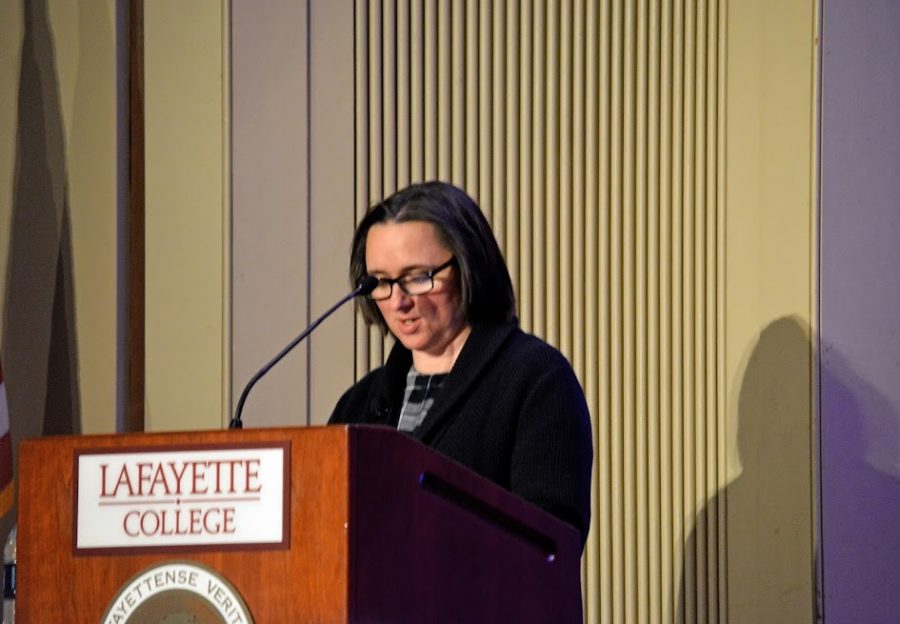On Wednesday, bestselling author Sarah Vowell came to Colton Chapel to talk about Lafayette, the person. Not the college, or the town in Louisiana, or the town in Alabama, or Kentucky or the three in Wisconsin, but the man himself.
At the very beginning of her talk, Vowell emphasized that, in the modern day, Lafayette is the name of places, not a person. When she told one of her friends that she was writing a book about the history of Lafayette, her friend asked her if she was going to spend a lot of time in Louisiana to work on it, failing to realize that Vowell was talking about the Marquis.
This is extremely ironic for Vowell, who was first drawn to Lafayette due to his overwhelming popularity. During his return tour of the United States in 1824, the entire country welcomed him with open arms and undisguised adulation.
“He was here for thirteen months and he went to all the states…and the whole country embraced him as one,” Vowell said in an interview before her lecture. “There was something so exotic to me to see the whole country so besotted with one person en masse, especially because we’re such a fractured, divided country…it is strange to see such a shared fixation for him.”
Her research into the life and times of the Marquis, and the country that he helped found, hit a snag early on.
“While I was trying to go to Independence Hall to learn about the government that was founded there…the government that was founded there shut down.” Since Independence Hall is run by the National Park Service, “a non-essential government agency,” the government shutdown in 2013, caused by deep divisions in congress, prevented Vowell from researching one of the most unifying figures in early US history.
However, these divisions are nothing new, according to Vowell. “So much of the story of Lafayette in America has to do with the American’s quarrels and rancor, and the conspiracy against Washington being a prime example of that.”
“It just goes to show you what kind of country we always have been from the beginning,” she added.
During the Marquis’ tour of the country, there was an ongoing presidential election, the first in which none of the candidates was a Founding Father. The country was as divided then as ever, making the fact that two-thirds of New York City’s population turned out to greet Lafayette’s ship as it came into harbor even more remarkable. For the 50-year-old country, Lafayette was a living reminder of the revolution and the foundation of their republic.
Vowell went on to say that, though we are and always have been a divided country that has so rarely united, with a major exception being the Marquis’ tour of the Marquis in 1824, those divisions were not necessarily a bad thing. Vowell brought up Lafayette Square, the square across from the White House where many protests have occurred over the years, including suffragette, environmentalist, anti-war and civil rights protests.
“You know you have a free society when even the most hateful, bigoted dunderheads are allowed to speak their mind,” she said about a KKK rally that was held in the square. “It’s important that we don’t take [the freedom to protest] for granted.”
Ultimately, Vowell holds some deeper level of respect for the Marquis after writing this book.
“In some ways in this country, Lafayette is the name of something, the name of a place usually. He’s not a person,” she said. “But he’s a person to me.”





















































































































